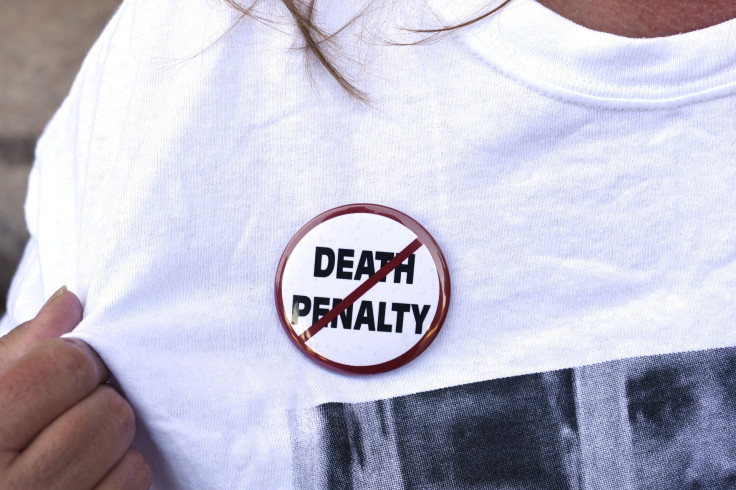Richard Glossip Execution Stayed By Oklahoma Gov Fallin As Lethal Injection Drugs Called Into Question

Richard Glossip, the Oklahoma man who was scheduled to be put to death Wednesday, had his execution stayed by the governor at the last minute. Gov. Mary Fallin intervened after the three drugs to be used in the execution, which had been set for 5 p.m. CDT, were called into question. Glossip's execution has now been postponed until Nov. 6, according to an executive order signed by Fallin.
"This stay will give the Department of Corrections and its attorneys the opportunity to determine whether potassium acetate is compliant with the execution protocol and/or to obtain potassium chloride," the Republican governor wrote in part of the executive order.
Glossip's death sentence was reviewed by the U.S. Supreme Court in June, and attempts to stay his conviction had gained widespread support, including from the pope, this week.
#RichardGlossip LIVES! @GovMaryFallin grants a 60-day stay of execution. pic.twitter.com/qUcOezMNkI
— Sister Helen Prejean (@helenprejean) September 30, 2015
Glossip was sentenced to death for being behind the murder of the owner of the motel where he worked, though he was not convicted of doing the actual killing. Glossip was accused by another hotel employee, Justin Sneed, of paying him to beat motel owner Barry Van Treese to death in 1997, the Atlantic reported.
#RichardGlossip is about to be executed despite glaring doubts about his guilt. #TooMuchDoubt http://t.co/arqm5PeLRE pic.twitter.com/Kwd8HBU9uM
— AmnestyInternational (@amnesty) September 30, 2015
Doubt has been raised about Glossip’s role in Van Treese’s death, and his attorneys accused Sneed of lying about it. Some fellow inmates of Sneed, who was sentenced to life in prison without parole for the killing, said he has admitted falsely implicating Glossip.
The U.S. Supreme Court said it would review his case, causing his execution to be stayed in January, the Washington Post reported. He challenged his death sentence by questioning the constitutionality of the lethal injection system that was set to be used.
Attorneys for Glossip argued that the first drug used in the three-drug protocol would not make a prisoner numb to the pain caused by the other drugs, making the process cruel and unusual punishment. The Supreme Court ruled against Glossip, saying that that protocol was constitutional because the petitioners didn’t adequately prove to the court that it wasn't.
The case gained national attention since there was dissent in the ranks of the Supreme Court over the death penalty. In his dissenting opinion, Justice Stephen Breyer it may be time for the constitutionality of the death penalty as a whole to come to the court again.
The execution was again stayed on Sept. 16 by the Oklahoma Court of Appeals to review evidence, but on Monday it was ordered to proceed, the Atlantic reported. Glossip pleaded for the last time to the Supreme Court for a stay on Tuesday, but the court declined to step in.
Many have called for Glossip's execution to be stopped, including death penalty opponent and actress Susan Sarandon, Virgin Group founder Richard Branson and Pope Francis, who asked in a letter to Fallin to commute the sentence, although she does not have the authority, NBC News reported.
© Copyright IBTimes 2024. All rights reserved.





















